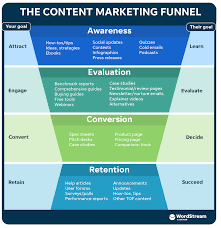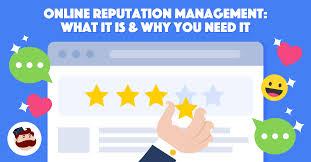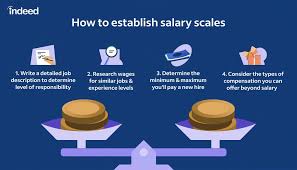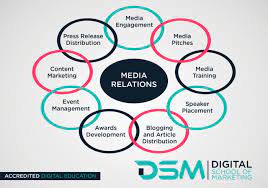Unlocking Success: The Art of Content Creation in Digital Marketing
The Power of Content Creation in Digital Marketing
In the fast-paced world of digital marketing, content creation plays a crucial role in engaging audiences, building brand awareness, and driving conversions. Quality content is the foundation of any successful digital marketing strategy, as it allows businesses to connect with their target audience on a deeper level.
Content creation involves developing and sharing valuable, relevant, and consistent content to attract and retain a clearly defined audience. Whether it’s blog posts, social media updates, videos, podcasts, or infographics, compelling content can help businesses stand out in a crowded online landscape.
One of the key benefits of content creation in digital marketing is its ability to drive organic traffic to a website. By creating high-quality and SEO-friendly content, businesses can improve their search engine rankings and attract more visitors who are actively searching for relevant information.
Moreover, engaging content can help businesses establish themselves as industry experts and thought leaders. By sharing valuable insights and knowledge through various channels, businesses can build credibility and trust with their audience, ultimately leading to increased brand loyalty and customer retention.
Content creation also plays a vital role in social media marketing. Compelling posts that resonate with the target audience can spark conversations, increase engagement levels, and drive traffic back to the business website. Social media platforms provide an excellent opportunity for businesses to showcase their brand personality and connect with customers on a more personal level.
Furthermore, effective content creation can support other digital marketing efforts such as email marketing campaigns, pay-per-click advertising, and influencer partnerships. By creating cohesive messaging across different channels, businesses can reinforce their brand identity and maintain a consistent brand voice throughout the customer journey.
In conclusion, content creation is at the heart of successful digital marketing strategies. Businesses that invest time and resources into creating valuable and engaging content are more likely to attract new customers, retain existing ones, and drive business growth in today’s competitive online landscape.
Essential Insights into Content Creation for Digital Marketing: Understanding Its Impact, Strategies, and Measurement
- What is content creation in digital marketing?
- Why is content creation important in digital marketing?
- How can businesses benefit from content creation in digital marketing?
- What are the key elements of a successful content creation strategy?
- How does content creation impact SEO and organic traffic?
- What types of content are most effective for digital marketing purposes?
- How can businesses measure the effectiveness of their content creation efforts?
What is content creation in digital marketing?
Content creation in digital marketing refers to the process of developing and sharing valuable, relevant, and engaging content across various online platforms to attract and retain a target audience. It involves creating a wide range of content types such as blog posts, social media updates, videos, infographics, podcasts, and more with the aim of connecting with users on a deeper level. Effective content creation is essential for businesses looking to establish their brand identity, drive organic traffic to their website, build credibility as industry experts, and engage with customers in meaningful ways. By crafting compelling content that resonates with their audience’s needs and interests, businesses can enhance their online presence and achieve their marketing objectives in the digital landscape.
Why is content creation important in digital marketing?
Content creation is paramount in digital marketing due to its ability to engage audiences, build brand credibility, and drive conversions. Quality content serves as a bridge between businesses and their target audience, allowing for meaningful connections and interactions. In the vast digital landscape, where competition is fierce, compelling content sets businesses apart by capturing attention, conveying expertise, and fostering trust. By consistently delivering valuable and relevant content across various platforms, businesses can enhance their online visibility, attract organic traffic, and establish themselves as industry leaders. Ultimately, effective content creation forms the cornerstone of a successful digital marketing strategy by nurturing relationships with customers and guiding them through the buyer’s journey.
How can businesses benefit from content creation in digital marketing?
Businesses can benefit significantly from content creation in digital marketing in various ways. Quality content serves as a powerful tool to engage target audiences, establish brand authority, and drive organic traffic to websites. By consistently producing valuable and relevant content across different digital channels, businesses can enhance their online visibility, attract potential customers, and build long-lasting relationships with their audience. Additionally, effective content creation can help businesses differentiate themselves from competitors, boost brand recognition, and ultimately drive conversions and revenue growth. Overall, investing in content creation as part of a comprehensive digital marketing strategy can yield substantial benefits for businesses looking to succeed in the competitive online landscape.
What are the key elements of a successful content creation strategy?
When considering the key elements of a successful content creation strategy in digital marketing, several factors come into play. Firstly, understanding the target audience and their preferences is crucial. Tailoring content to resonate with the specific needs and interests of the audience can significantly enhance engagement and conversion rates. Secondly, consistency in delivering high-quality content across various channels is essential for building brand credibility and trust. Additionally, incorporating search engine optimization (SEO) best practices to improve visibility and reach is vital for driving organic traffic. Lastly, measuring and analysing the performance of content through metrics such as engagement rates, click-through rates, and conversions allows for continuous improvement and refinement of the content strategy over time. By focusing on these key elements, businesses can develop a robust content creation strategy that effectively connects with their audience and drives results in the digital marketing landscape.
How does content creation impact SEO and organic traffic?
Content creation plays a significant role in influencing SEO and organic traffic in digital marketing. By consistently producing high-quality, relevant content that incorporates targeted keywords and provides value to users, businesses can improve their search engine rankings. Search engines like Google reward websites with fresh, informative content by ranking them higher in search results, making it easier for potential customers to discover the business organically. Effective content creation not only enhances a website’s visibility but also drives organic traffic by attracting users actively seeking information related to the business’s products or services. Ultimately, content creation serves as a powerful tool to boost SEO performance and increase organic traffic, helping businesses reach a wider audience and achieve their digital marketing goals.
What types of content are most effective for digital marketing purposes?
When considering the most effective types of content for digital marketing purposes, it is essential to focus on creating content that resonates with the target audience and aligns with the overall marketing goals. Various types of content can be highly effective in digital marketing, including engaging blog posts that provide valuable insights, informative videos that showcase products or services, visually appealing infographics that simplify complex information, interactive quizzes or polls to engage users, and compelling social media posts that spark conversations and drive engagement. Ultimately, the effectiveness of content in digital marketing lies in its ability to capture attention, deliver relevant messaging, and inspire action from the audience.
How can businesses measure the effectiveness of their content creation efforts?
Businesses can measure the effectiveness of their content creation efforts in digital marketing through various key performance indicators (KPIs) such as website traffic, engagement metrics, conversion rates, and ROI. By analysing data from tools like Google Analytics, social media insights, and email marketing platforms, businesses can track the performance of their content in terms of reach, engagement levels, lead generation, and ultimately, revenue generation. Additionally, businesses can conduct A/B testing to compare different content strategies and determine which ones resonate best with their target audience. Regularly monitoring and analysing these metrics allows businesses to refine their content creation strategies for optimal results and ensure that their efforts align with their overall marketing objectives.












